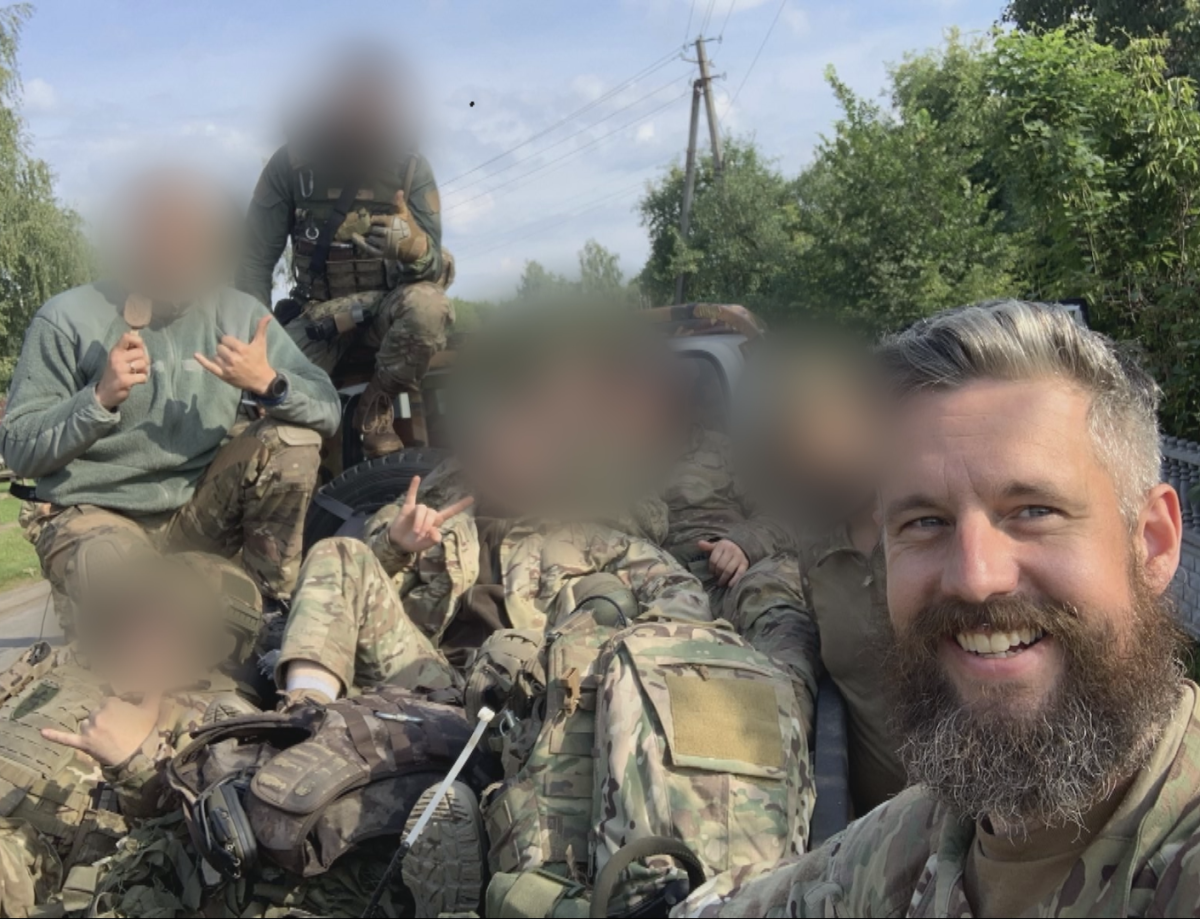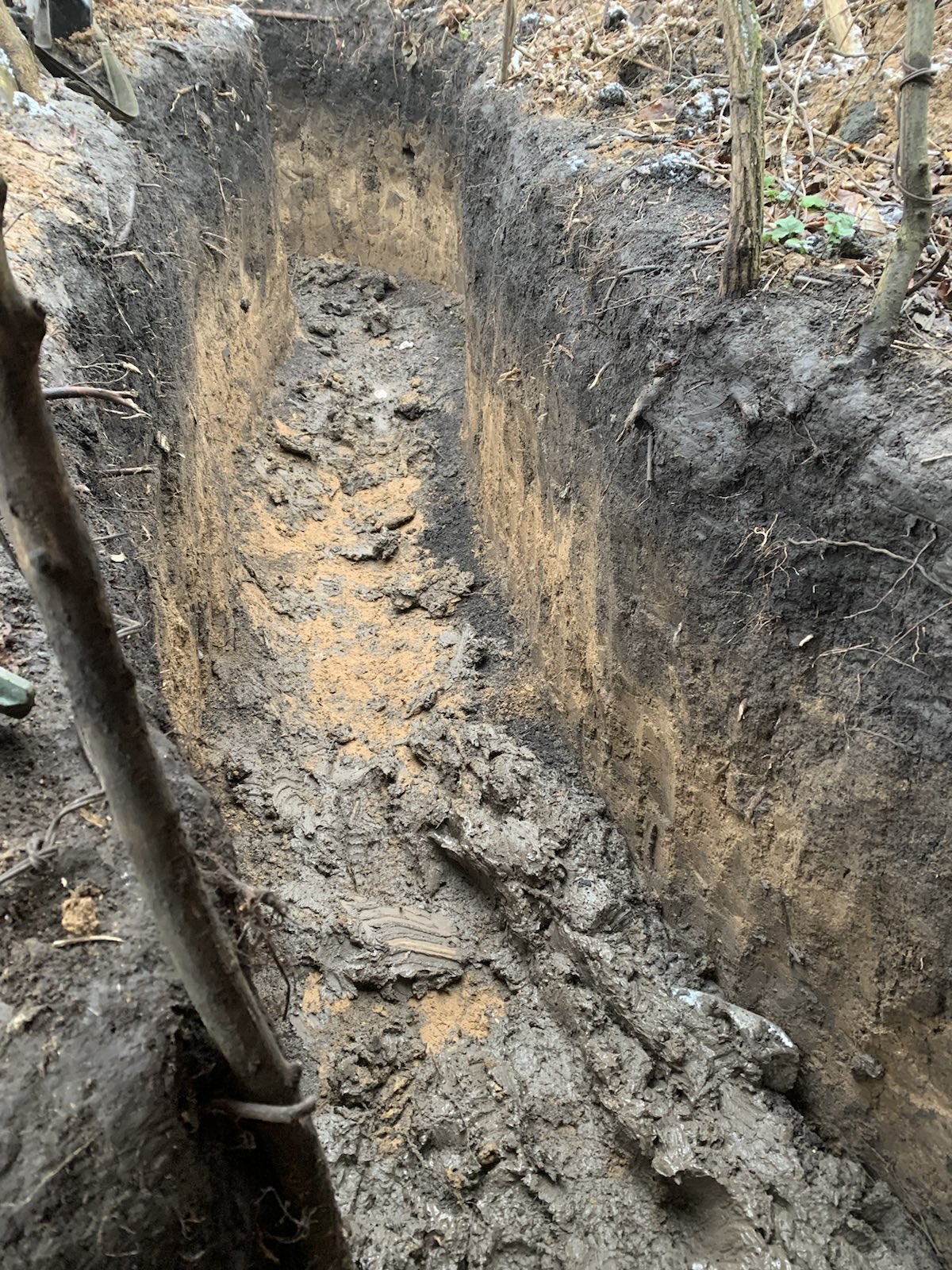Dave Smith says no one in his family was too surprised when he told them he was going to quit his job as a major in the Canadian Armed Forces to fight in the muddy trenches of eastern Ukraine.

“I actually never had to explain it to them. My brother, when I told him — I was on a phone call with him and my sister — and he said something to the effect of ‘I can’t believe you’re not there already,'” the 40-year-old Toronto native says, speaking with Global News while on leave in London, England.
“I never really had to give anyone a reason, and all the reasons I gave my wife, she accepted but was still upset about.”

The last deployment of his 15 years with Canada’s military was as part of a task force in Europe helping Ukraine deal with Russia‘s full-scale invasion in 2022.
But that support role wasn’t enough for Smith, who headed to Ukraine after resigning in March 2023.
“You can’t wait for someone to go tell you to defend freedom anymore. You’re not about to get written orders with travel instructions, like, ‘Buy some body armour and get on a plane and go to where the fight’s happening,'” Smith says.
“Because otherwise the people that end up doing it are, like, Ukrainian IT professionals, who are not trained — and their heart’s in the right place, and they will fight until their dying breath, but they’re going to get killed.”
Smith is one of many non-Ukrainians from across the globe who have voluntarily joined the fight against Russia’s invasion.
In March 2023, The New York Times reported that around 1,500 men were fighting for the International Legion for the Defence of Ukraine.
Smith, though, is fighting for a mostly Belarussian unit that technically sits outside the International Legion.
The Kastuś Kalinoŭski Regiment was formed by a group of supporters of the political opposition movement in Belarus, who see Ukraine’s fate as intertwined with that of their own country.
Longtime Belarussian President Alexander Lukashenko is a staunch ally of his Russian counterpart Vladimir Putin, and he allowed Russian troops to base themselves in Belarus for the 2022 invasion of Ukraine.
Smith says the Belarussians are not there for a sense of adventure but as part of a fight against autocracy in Europe.
“They’re all kind of ideologically aligned with how serious I took the war. So I joined their unit,” he says.
Ukraine pays foreign fighters; Smith was given with a Ukrainian debit card when he signed up.
The Kremlin calls soldiers like him “mercenaries,” but as he explains, if it were about money, he’d still be in his old job.
“You can survive in Ukraine on it, definitely in eastern Ukraine, but trying to bankroll my life back in Canada, it’s hard,” says Smith, whose wife lives in their home in Ottawa.
“As for Putin calling us mercenaries, he does not understand how ideologically motivated the foreign fighters in Ukraine are.”
- Harvey Weinstein hospitalized after return to jail following rape conviction overturn
- California mom accidentally invites 487 people to child’s 1st birthday
- ‘Hiroshima-level casualties’ feared in final battle for North Darfur
- Canada is unblocking aid to Afghanistan but delay is ‘extremely frustrating’: advocate
First World War with drones
Smith says he learned some Ukrainian when he first arrived in Ukraine, only to be deployed to the Russian-speaking unit.
Nonetheless, he says the simplicity of trench warfare means that there isn’t much of a language barrier, and he can get by on a mixture of English and a set of basic Russian phrases.
He says the cold and snow are relatively easy to deal with for any well-trained Canadian soldier. It’s the November mud of the steppe that gets him.
“The mud in Ukraine defies physics. It gets everywhere. It’s on everything,” he says.
“It slows you down to the point where neither us nor the Russians can really manoeuvre.”
He laughs as he recalls his early days as a Canadian soldier in CFB Wainwright and CFB Gagetown, resenting having to learn how to dig trenches.
“We were always like, ‘This is stupid. We’re never going to do this again. We’re going to be fighting terrorists the rest of our careers, or insurgencies, or something.’ And all the old guys who remembered the Cold War were like, ‘No, you have to practise clearing trenches,'” he says.
“They were right and I was wrong. It’s that simple.”
In many ways, Smith’s nine months in Ukraine have been a 20th-century war experience, although there are some key differences.
Drones change the rules of what soldiers can do in trenches. One mistake that flags your position can prove fatal.
“In the nine months I was in Ukraine I probably went to seven or eight funerals, and those were just the funerals I could go to,” he says.
“At a certain point, everything just becomes like surreal and hilarious, you know, like I just had to go pee and now there’s a 122-millimetre shell flying over my head.”
Smith says he and his fellow soldiers are only deployed into the trenches for three or four days at a time before rotating out for rest.
Any longer in a trench, he says, would be “unsustainable.”
Fighting against fatigue
After nine months of fighting, Smith is taking a break elsewhere in Europe, to see his wife and to rest.
He had to quit Ukraine’s armed forces to be allowed leave the country, but he fully intends to return and rejoin in late January.
Smith hopes western nations will continue to support Ukraine too, despite future U.S. military support being tied up in Congress in Washington.
“I am not really convinced the consensus is as cracked as it’s being portrayed in the English language traditional media,” Smith says.
“I think it’s just become a political lever that can be pulled, just like anything else.”
Despite Smith’s commitment to the fight on the ground, he is not especially optimistic about how the war will develop.
He thinks neither side can win the war on the battlefield, because he believes Putin will throw almost infinite resources at the fight and Ukrainians will never surrender their freedom.
“Ukrainians are never, ever, ever going to do that, and nor should they be expected to. So Russia can’t win on the battlefield,” he says.
“I do think there will be an end to this war, but I don’t think it will be the decisive military victory that people want it to be, because that rarely ever happens.”
Smith also thinks negotiating with Russia would be “a horrible idea” for Ukraine.
His analysis likely equates to a war with little end in sight, but Smith is up for the fight.
“If we don’t stop Putin now, the world’s dictators will see that they can use violence to impose their will on the rest of us.”









Comments